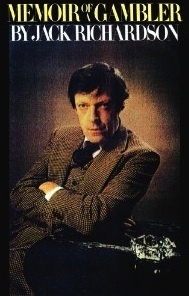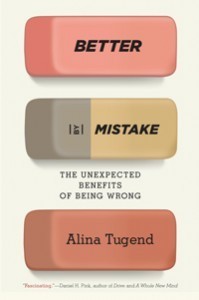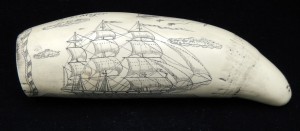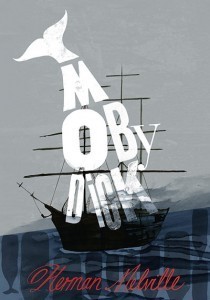The Paris Review's Blog, page 884
October 4, 2012
Poetic Prescriptions, Banished Words
Get a prescription form from the Poetry Pharmacy.
A poem written by Sylvia Plath as a college student has surfaced.
This year’s “List of Words Banished from the Queen’s English for Misuse, Overuse, and General Uselessness.”
Orson Welles and Hemingway had a relationship. It was “very strange.”
Mark Twain: “Apparently, the Concord library has condemned Huck as ‘trash and only suitable for the slums.’ This will sell us another twenty-five thousand copies for sure!” Writers respond to having books banned.
October 3, 2012
Dead Authors at Fashion Week: Part 5
Gertrude Stein takes notes from the front row at the Céline Spring 2013 collection.
SILK TWIST.
Look 6.
The change in that is that thick night satin for day. The change has come. There is no sleeve. But there is, there is the understanding of a sleeve. Surely any is unwelcome for spring, but sometime there is breath and there will be trousers that breathe and the pool sandal is charming very charming is that wrapped in and cleansing. Certainly all black for spring is handsome and convincing.


A PURSE.
Look 11.
A purse was not blue, it was not straw color. If it was paper it would be nothing and nothing would be in it but PB and J. It was a leather lunch bag and it showed that it rolled open, that is all that it showed.


A LITTLE BIT OF A SLIPPER.
Look 13.
A shining indication of strong collections consists in there having been more of the textures that don't belong and bringing in a sense an association like walking on smoke puffs. This was the hope which made the six and seven editors around me feel no use for silly rabbit heels we all pray shed into nothing. Shed into nothing.


A FUR SHOE.
Look 19.
An elegant use of a house coat and grace and a little piece of a priest collar.
So fur shoes of several kinds imagined in March slush and trailing dust in the salon makes the fluff tufts a joke and really several. Fluff in the slush pile and then on the sandwiches in the lunch bags what I mean is they could be tasty out of context and editorially strong.


MORE.
Look 25.
Yellow fur yellow rather—
No. Ew come on.


NOTHING ELEGANT.
Look 26.
A charm a single fuzz charm is doubtful. If the fashion holds and there is a bad accessory surrounding it, if inside there is a chance for shoes to change and a cool loafer change then certainly something is upright.
Letter from a Haunted House: Part 1
 I rented my apartment, a large studio on the top floor of a three-story house listed in the National Registry of Historic Places, sight unseen, through Craigslist. When my mom asked me, months later, for its address, I had to do a Google search. Among the results was a mention of my place being haunted. I didn’t click on the link. I did mention it to my husband, Clancy, in passing.
I rented my apartment, a large studio on the top floor of a three-story house listed in the National Registry of Historic Places, sight unseen, through Craigslist. When my mom asked me, months later, for its address, I had to do a Google search. Among the results was a mention of my place being haunted. I didn’t click on the link. I did mention it to my husband, Clancy, in passing.
On the day I moved in, without giving it any thought, we started to refer to one storage space—there are three, two low-ceilinged ones on either side of the pitch-roofed room and one closet—as “the bad area.” We had barely walked in, we (at least I) had forgotten the ghost, and here we were—“the bad area.”
In fairness to the rational-minded, the bad area was just that. It had a white door on hinges that came to my chest. The floorboards were unfinished. Brown insulation fiber had come loose in the ceilings and was all over the floor. It was dusty and full of cobwebs. An industrial, kevlar-and-aluminum fire-escape ladder was in one corner. The previous tenant lived here three years. I don't think he swept in there one time. I don't think anyone did. (The other storage area was half open, clean, with finished floors.)Read More »
Do-Gooders, Good Covers
Check out Design Observer’s list of cover-design award winners.
A California school library is saved by an anonymous sixty-thousand-dollar donation.
An interactive Shakespeare app includes narration by Derek Jacobi, an Elizabethan-to-modern translation function, and video clips.
Three protest songs by Nicholson Baker: the writer takes on military intervention, Bradley Manning, and civilian casualties.
“I got my M.F.A. out on the streets. My thesis advisor was a garbage bag filled with overdue library books.” How to apply to an M.F.A. program.
October 2, 2012
October Surprise; or, How to Follow a Perfect Season
My grandfather died in St. Louis last year on October eighth. The following night, Chris Carpenter pitched a three-hitter against the Phillies, lifting the Cardinals into the NLCS and alerting the nation that rather than just a squad of plucky underdogs, the Cardinals might be a team touched by something phenomenologically greater than a hot streak. For certain members of my family, my grandfather’s mid-playoff death offered a locus for the sense of destiny awakening around the Cardinals; in the weeks to come, as the team mounted increasingly improbable victories, more than one relative offered comments in the vein of, “Wally had something to do with this!” or “Wally was watching over the Cardinals last night!” Being a skeptical and ragged Catholic, I responded to these remarks with quiet derision, as I do to all suggestions that the Almighty would choose to meddle in the outcomes of our mortal diversions.
But as the weather here in St. Louis finally cools after a boiling, interminable summer—a summer that saw the maddening Cardinals muddle their way to a fragile hold on one of the devalued wild-card spots—I find it difficult not to look back on last fall’s championship run and see a team touched by divinity, or magic, or fate—a moment when a higher realm reached through the portal of sport and touched this mortal plane. The Cardinals may well make the playoffs this year, but I have to confess that I’m finding it hard to care. Whatever illumed last season, it’s gone, and here in St. Louis, we’re learning to live in its aftermath.
“Baseball,” as Michael Chabon observed in McSweeney’s no. 36, is “a game that somehow seems to offer more room, a greater scope than other sports, for the consciousness of failure and defeat—has always been associated, in its own history and my own, with a sense of loss, the idea of the lost arcadia, the last patch of green folded into a pocket of the world of brick and asphalt.” The sport is a dissonant blend of nostalgia and modernity. On the one hand, as Chabon says, it is a sport stubbornly resistant to change. The unhurried pace, the managers in uniform, the persistence of Fenway and Wrigley, the timeless sound of vendors calling out over the chatter of multitudes—these are all dogged holdouts, boulders in the stream of capital-P Progress, a refuge of familiarity in a world that often feels bent upon making itself unfamiliar from one day to the next. As George Carlin once put it, the objective of baseball is to go home.
Paranoid Mazurka in C-sharp Minor
Before Uncle David’s funeral out at Springvale more than a decade ago, I had no idea that his only daughter, my cousin Janet, who was the youngest of our late mother’s bridesmaids, and in later life nobly accepted the charge and responsibility of being my godmother, served also as a junior member of the staff of the Australian Security Intelligence Organisation, briefly pursuing a career in counterespionage, and that, at one point in the early to mid-1960s, Cousin Janet covertly tailed a relatively low-level visiting delegation of lumpen Soviet officials when they traveled north by train from Spencer Street to find out all about certain improvements in animal husbandry at the annual Wangaratta Agricultural Show, or such, at least, was the dubious pretext of their expedition, a task of surveillance that would have been much easier if Cousin Janet had spoken any Russian, although she may have been issued with advanced tape-recording equipment or a microphone and a powerful miniature radio transmitter that, concealed inside the bodice, trench coat or handbag, might well have captured for the benefit of more specialist, fluently Russian-speaking analysts in Canberra any stray but pertinent snippets of conversation, the evidence perhaps of sinister Soviet connivance with local fifth-columnist elements, a cadre of enemy operatives bent upon the destruction of the Commonwealth, or else the activation of a communist mole in the Riverina, even, I daresay, a dirty-tricks campaign in respect of the distribution of prizes for dairy cattle and other livestock or maybe cake decoration, the better to sow bitter seeds of discord in an otherwise harmonious rural community hitherto committed to free enterprise and untouched by the dead hand of international socialism or various subtler forms of Kremlin-sponsored Marxist-Leninist ideology, as deeply improbable as any of these scenarios admittedly now strikes one, although it should be remembered that back then the cold war was mighty frigid, and the membrane separating just suspicions from total paranoia was quite porous, so I have no doubt that Miss Wilberforce—for this, I gather, was one of the aliases adopted from time to time by Cousin Janet’s ASIO controller in Melbourne, a gray-cropped spinster lady with somewhat gruff but otherwise impeccable manners and certainly a great deal of common sense, from whom Uncle David boldly sought personal assurances in the beginning that his beloved only daughter would never be put in harm’s way, assurances that Miss Wilberforce politely regretted she could not possibly give, except to state with firmness that every measure would be taken to safeguard each and all of her personnel in the discharge of their important intelligence-gathering duties—Miss Wilberforce, I am certain, would have taken just as seriously the protection of Australia’s pastoral industries against any foreign threat, in Wangaratta no less than in Cunnamulla,Read More »
Handsome Crooks, Crooked Reviewers
Meet “ridiculously photogenic 19th century NZ criminal” Daniel Tohill.
“Wanted — literate, artful writers who can post five-star reviews of some books on amazon.com. Pay is fifteen dollars firm for fifty to a hundred words of high praise with some specifics about the book that will appeal to potential readers.”
The most-challenged books of 2012: newcomer Fifty Shades of Grey joins old favorites like witchcraft-mongering Harry Potter and Slaughterhouse Five.
Gary Shteyngart: “You, American Airlines, should no longer be flying across the Atlantic. You do not have the know-how. You do not have the equipment. And your employees have clearly lost interest in the endeavor.”
Wes Anderson presents an animation of the fictional books from Moonrise Kingdom.
October 1, 2012
Shades of Red: On Indian Summer
Babie leto. The summer of old women. Even today, years after leaving Russia, that’s what I always call Indian summer in my head. The stress on the first syllable, the second merging seamlessly into that bright le of false warmth. The time of year I’m happiest to live where I do, forgiving for once the winter cold that lasts just a little too long, the days that grow just a little too short a little too quickly—and then seem to stay there indefinitely. The summer of the old women. I’ve often wondered why it is that some elderly hags should get special claim to these days of deceptive warmth, what it is in the ember of reds and honeyed yellows of the leaves that calls to them above everyone else. It seems somehow unfair, that privileged ownership.
A falling spindle of fine thread, catching the rays of the sun on its way down from the sky, letting the light play off its gossamer thinness. The flower crab spider’s web carried through the air by the autumn wind. It’s the finely spun yarn of a young girl who has been weaving without rest for days and nights on end. Long, long ago she was kidnapped by the sun, and now, she must spend her endless lifetime spinning fine thread for his pleasure. On the bright, clear days of babie leto, you can see her handiwork spiraling through the air. She is the woman of the second summer. And she may be timeless, but old she most certainly is not.
A lumbering long-haired creature of mythological proportions who comes out of hiding with the first notes of warmth that follow the early fall cold. His name is Baba. His hair is like a collection of finely spun spider’s webs—and he can use it to tickle people to their deaths. He is the true owner of those waning days of warmth, old women be damned. They’d better watch out for his deceptively inviting hair.
There are the more prosaic explanations, of course. Read More »
Memoir of Memoir of a Gambler
 There were few places on the ship less conducive to reading than the library. In the summer of 2000, in my early twenties, I was stationed aboard an aircraft carrier. The library sat directly beneath the flight deck, which means that in addition to the thump, rattle, and screech of the planes as they landed, there was the heat from the catapults and their fuel, a heat so thick it invaded your respiration like some perniciously odorless fume, trespassing on your psyche and then inhabiting it. Reading there was out of the question, but we weren’t on the ship to read. Which is why it always surprised me how many great books they had in that library.
There were few places on the ship less conducive to reading than the library. In the summer of 2000, in my early twenties, I was stationed aboard an aircraft carrier. The library sat directly beneath the flight deck, which means that in addition to the thump, rattle, and screech of the planes as they landed, there was the heat from the catapults and their fuel, a heat so thick it invaded your respiration like some perniciously odorless fume, trespassing on your psyche and then inhabiting it. Reading there was out of the question, but we weren’t on the ship to read. Which is why it always surprised me how many great books they had in that library.
I found one of the greatest purely by chance. I knew neither the book, Memoir of a Gambler, nor its author, Jack Richardson. It was the title that hooked me. Our ship would soon be returning to San Diego, after a six-month cruise throughout the Pacific Ocean and Arabian Sea, and so I knew I would soon be gambling again. Having already become a devotee of the sports-gambling culture of San Diego—or, more specifically, its adjunct playground of Tijuana—I needed little encouragement. But in the book I now held in my hands, I would find plenty of encouragement anyway.
On the cover, this Jack Richardson struck a classically arch pose, arms crossed in a subdued brown sport coat and vest, staring self-importantly into the camera; beside him, on a circular bar-table sat a gleaming, thickly cut glass ashtray, a lone cigarillo perched on its edge. The back cover featured a blurb from William Styron (a notoriously selective blurber, even on behalf of friends), proclaiming, “Jack Richardson is a wonderful writer and his book is a powerful portrayal of one man’s obsession—sad, hilarious, erotic, and, above all, pitilessly honest. I read Memoir of a Gambler with fascination and delight.” The bio inside the back flap revealed that the author was a distinguished playwright who had also written for many of the magazines I cherished most, and then, on the copyright page, a partial explanation for why I did not recognize him from any of those magazines: “Copyright ©1979.”
Hobbit Mythology, Classics Reinvented
Artists from all over the world reinterpret covers for The Observer’s list of the hundred greatest novels.
The Ransom Center’s Pale King archive is now open to the public.
Look through some of DFW’s extensive notes.
Good news for Louie C.K.: the Puzo estate can’t prevent any future Godfather films.
“The Hobbit, published seventy-five years ago, is not a fantasy-adventure as it is being described, but a myth, or part of a mythology.” On the novel’s scholarly underpinnings.
The Paris Review's Blog
- The Paris Review's profile
- 305 followers











